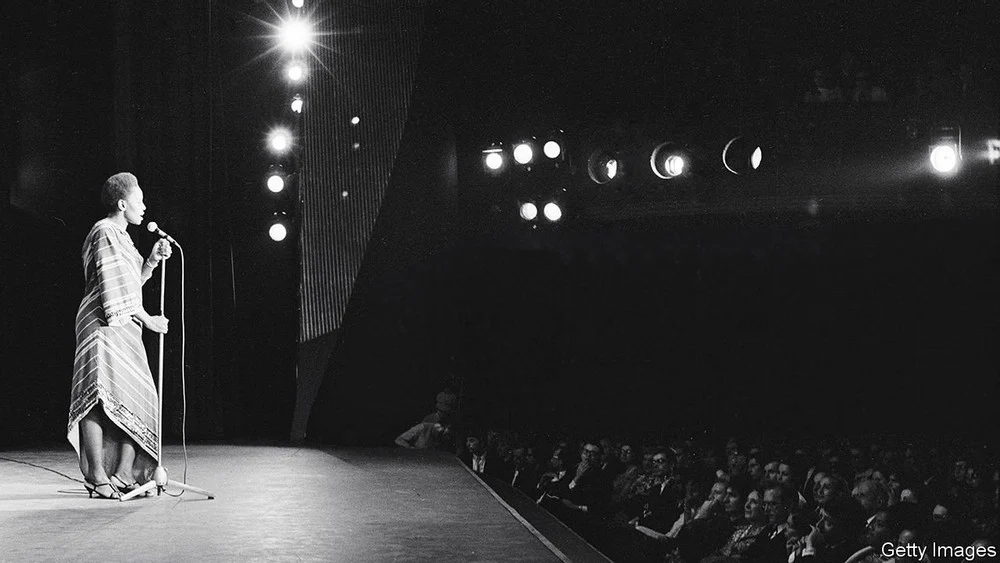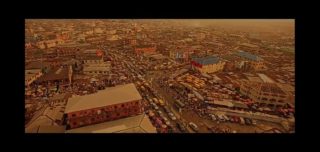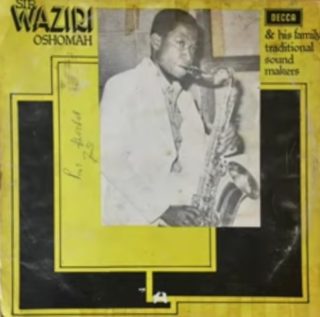IN 1991 AMERICAN audiences had an introduction to Xhosa, one of South Africa’s most click-filled languages, when Miriam Makeba (pictured) appeared on “The Cosby Show”. When the celebrated South African singer started flicking her tongue as she said her name, four-year-old Olivia asked, “Oh I’m sorry, do you have a cold?”
In most parts of the world the clicks of Zulu and Xhosa, the languages spoken most commonly at home in South Africa, sound completely foreign. Duolingo, the world’s biggest language-learning platform, is hoping to make them more familiar. Next year it will offer lessons in both to its 40m active users.
This poses new challenges. For the first time its course designers will have to figure out how to teach clicks in an app. There are three types: c (a ‘tsk tsk’ sound), x (the sound you’d make to get a horse to speed up) and q (a bit like the sound of a champagne cork popping). Recording native speakers and using audio lessons will be much like teaching sounds in any other language, says Myra Awodey of Duolingo. But it will also have to explain how one should thrash one’s tongue about to make the lateral (not to be confused with the alveolar or dental) click that so confounds people trying to say nothing more than “Xhosa”.
The firm says the courses will have a large potential audience, but migrants and refugees living in South Africa are a group that could particularly benefit. Elsewhere Duolingo has stumbled upon some unexpected uses of its app, such as a large number of people learning Swedish in Sweden. The reason, it found, was that migrants were trying to integrate into their new country. In South Africa there are more than 2.9m of them, including 500,000-1.5m from Zimbabwe.
Learning Zulu or Xhosa can help migrants blend in. Those coming to South Africa from elsewhere in Africa often face abuse if they stand out by not speaking an indigenous language. There is even a derogatory term for black migrants who speak their own languages, Makwerekwere, which supposedly mimics the “kwere kwere” sounds they make that grate on the ears of locals.
Speaking one of these languages has other perks, too. The two have many similarities, so that people who speak Zulu, say, can easily understand and talk with someone who speaks Xhosa or any of the other tongues in the same family, which includes Swati (spoken in Eswatini) and Ndebele (which is common in parts of Zimbabwe). Those who pick up Zulu or Xhosa can thus chatter with at least 40% of South Africans.
Ms Awodey says Duolingo has “a role to play in preserving and teaching endangered languages”. It may be a stretch to call Zulu or Xhosa endangered. But local non-profits and Trevor Noah, South Africa’s funniest export, have teamed up with the firm to bring them to its platform. The polyglottic Mr Noah has a particular interest in one. His Xhosa-speaking mother raised him using English, a fine language, but one that is exceedingly difficult to get a click out of.
By The Economist





